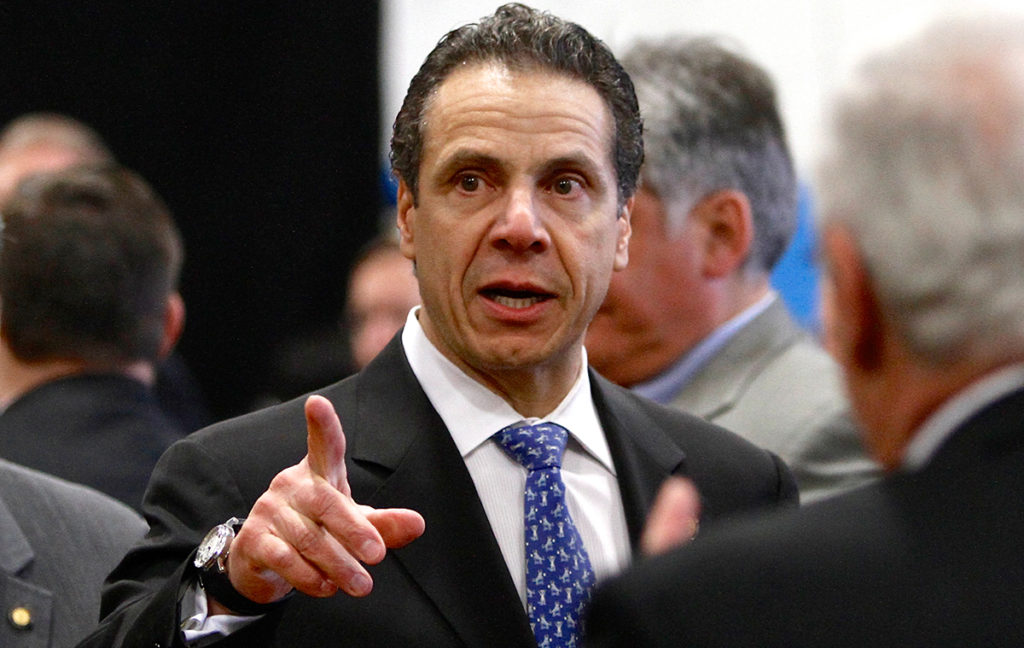New York Gov. Andrew Cuomo is right now considering signing a bill into law that would create a commission to investigate possible misconduct by prosecutors. The bill passed both chambers of the state Legislature this spring after several years of pushing for it. Cuomo has until the end of the year to sign it.
But if lawmakers and the governor are so eager to create watchdog groups to seek out wrongdoing, they should start with re-creating the Commission to Investigate Public Corruption, better known as the Moreland Commission.
The commission was created by Gov. Cuomo in July 2013 to investigate any red flags of possible corrupt activities committed by anyone inside New York state government, and to put pressure on the Legislature to pass the kind of ethics reforms Cuomo said he wanted.
Cuomo paraded the commission around as if it were one of his greatest accomplishments. He gave stump speeches, released television ads, and repeatedly touted its broad-sweeping powers and strict “totally independent” stance, with the ability to even investigate him if commissioners saw fit.
“Anything they want to look at, they can look at: me, the lieutenant governor, the attorney general, the comptroller, any senator, any assemblyman,” he once said. Yet Cuomo abruptly shut down the commission in April 2014, barely halfway through its projected 18-month tenure.
It has been four years since that midsummer morning in 2014 when The New York Times released a bombshell report saying that just before it was shut down, the Moreland Commission had begun looking into firms and lobbyist groups that had connections to Cuomo’s campaign.
The newspaper found that top Cuomo aides had been meddling in the commission’s probes, pressuring members to stop subpoenas to a media-buying firm Cuomo used, and to the Real Estate Board of New York, whose members contributed to the governor’s re-election bid.
The commission was also pressured to avoid a lobbying group of CEOs and business groups that amassed $17 million in donations from individuals who supported the governor.
The Times report created a controversy that is still ongoing. Cuomo’s Republican gubernatorial opponent at the time, Rob Astorino, called it “Cuomo’s Watergate.” Ethics watchdog groups went ballistic. And U.S. District Attorney Preet Bharara opened an investigation into the affair.
Cuomo and his allies’ only defense for shutting down the commission was that it was created at the governor’s discretion. “The Moreland Commission was my commission,” Cuomo told Crain’s New York in April 2014. “My subpoena power, my Moreland Commission. I can appoint it, I can disband it. I appoint you, I can un-appoint you tomorrow. So, interference? It’s my commission. I can’t ‘interfere’ with it, because it is mine. It is controlled by me.”
His aides’ explanation for their meddling was the belief that investigating the executive branch somehow represented a conflict of interest because the commission was created by the executive branch. So what happened to the commission being “independent” and having the freedom to look into anything and anybody?
It’s this exact predicament that makes a new powerful corruption-fighting commission so necessary. For whatever reason, Cuomo and his government can’t seem to comprehend what the word “independent” means.
We don’t need another Moreland Commission, they’ll say. We have the Joint Commission on Public Ethics (JCOPE), which was created two years before Moreland.
But JCOPE has been treated almost as a joke to government watchdogs. It has been lambasted by both Republican and Democratic officials, especially in the wake of Joe Percoco’s conviction, the former top Cuomo aide who was found guilty in March of accepting more than $300,000 in bribes.
Testimony at Percoco’s trial revealed that he used government resources while serving as Cuomo’s campaign manager, which may be against state public officers law. And members from both sides of the aisle are wondering why JCOPE hasn’t issued reports on this or hasn’t indicated they are even looking into it.
Others also accuse JCOPE of being a shield for Albany insiders and being too closely aligned with Cuomo, who himself appoints almost half of its 14 members.
One member, Jim Yates, who was appointed by state Assembly Speaker Carl Heastie, is a former aide to Sheldon Silver, the former Assembly speaker who was just sentenced for a second time on bribery and extortion charges. Yates was also in charge of the Assembly’s legal office when Silver agreed to a controversial, secret settlement with two women who accused fellow Assemblyman Vito Lopez of sexual harassment. Sounds like the perfect person to be part of the state’s top ethics panel.
To be fair, the Moreland Commission also had its members appointed, and that would have to change for any agency to be at all efficient. Corruption remains rampant in Albany and it’s clear that no current or recent ethics commission, to say nothing about legislative reform, has been able to put a stop to it.
That’s why it’s time for a new ethics commission that is actually independent and can investigate corruption free of any interference from those it might be investigating. Its members should not be appointed by the governor or any members of the Legislature. And the governor should not have the authority to shut it down at will.
It should actually have the ability to, as Cuomo said, look into “anything they want to look at”: the governor, lieutenant governor, attorney general, comptroller, any senator or assemblyman. If only our politicians were as concerned about their own misconduct as they seem to be about that of prosecutors.



